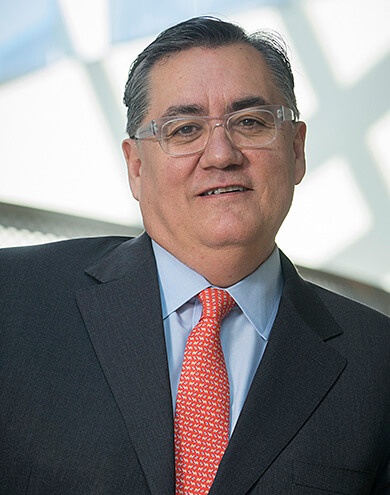June 9, 2017
Purdue researchers speak in D.C. about Zika crisis, other emerging infectious threats
 Tomás Díaz de la Rubia
Tomás Díaz de la Rubia
Download image
WEST LAFAYETTE, Ind. — Purdue University researchers from Discovery Park were among some of the nation’s prominent experts in Washington D.C., on Thursday (June 8) to participate in an expert roundtable on issues surrounding infectious disease.
“Facing the Zika Crisis and Other Emerging Threats” was organized by the Howard Baker Forum and Purdue, along with Children’s National Health System, Bipartisan Policy Center, University of Florida and the Gallup Organization. The event was held on Capitol Hill, and about 40 experts provided progress reports and the latest thinking on how to best identify, understand, fund and manage infectious disease threats.
“Today we worry about Zika and Ebola, but tomorrow could bring other major threats, and that is why we must prepare for unexpected emerging and re-emerging dangers,” said Tomás Díaz de la Rubia, executive director and chief scientist of Purdue’s Discovery Park. “Global problems like Zika require the globalization of knowledge, and universities provide a platform where people from all cultures and backgrounds can pursue and develop knowledge to attack serious problems that face us today. We're committed to working with everyone to address such global challenges.”
 Richard Kuhn
Richard Kuhn
Download image
Richard Kuhn, director of the Purdue Institute of Inflammation, Immunology and Infectious Disease in Discovery Park, moderated the panel on “The Interconnected Research and Challenges of Developing Strategies Against Zika Virus and Other Infectious Diseases.” Kuhn, a professor of biological sciences in the College of Science, also was a lead researcher of the Purdue group that discovered the structure of the Zika virus.
“In today’s highly connected world, an outbreak in any corner of the world is a threat to not only the local population, but also to everyone in the United States, and we must be vigilant in our support of global disease surveillance and control.” Kuhn said. “Fully funding research on infectious disease threats sends a signal to the world and to the students – who will be fighting infectious disease threats someday – that combating emerging threats is a national priority and the United States is committed to leading the world in this arena.”
In addition to deciphering the structure of the Zika virus, Purdue researchers have resolved the structure of the dengue virus; rhinovirus, which is the common cold virus; and enterovirus 71, which is a major causative agent for hand, foot and mouth disease.
Pamela Aaltonen, associate head of the School of Nursing in the College of Health and Human Sciences, participated on the panel “The Path Forward: Vector Control and Collaboration.” She is an elected member and chair of the executive board of the American Public Health Association.
Discovery Park is an open laboratory for interdisciplinary collaboration focused on global challenges. Our mission is to accelerate world-changing interdisciplinary research, enrich transformative education and advance the translation of innovation to commercialization activities of faculty, students and staff.
Writer: Amy Patterson Neubert, 765-494-9723, apatterson@purdue.edu
Source: Tomás Díaz de la Rubia, tddlr@purdue.edu
Related website:
America can’t afford to cut money from its war against infectious diseases

